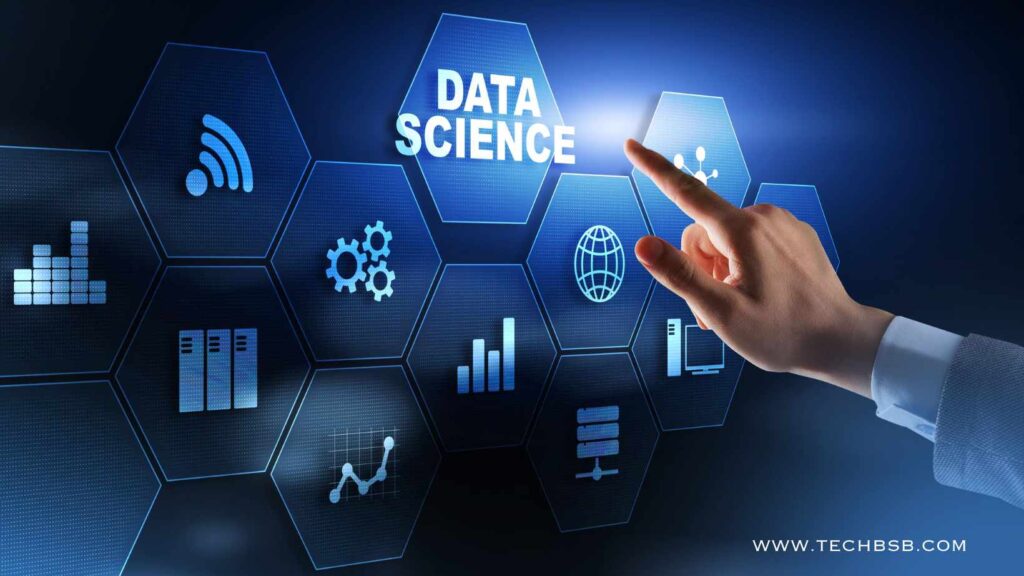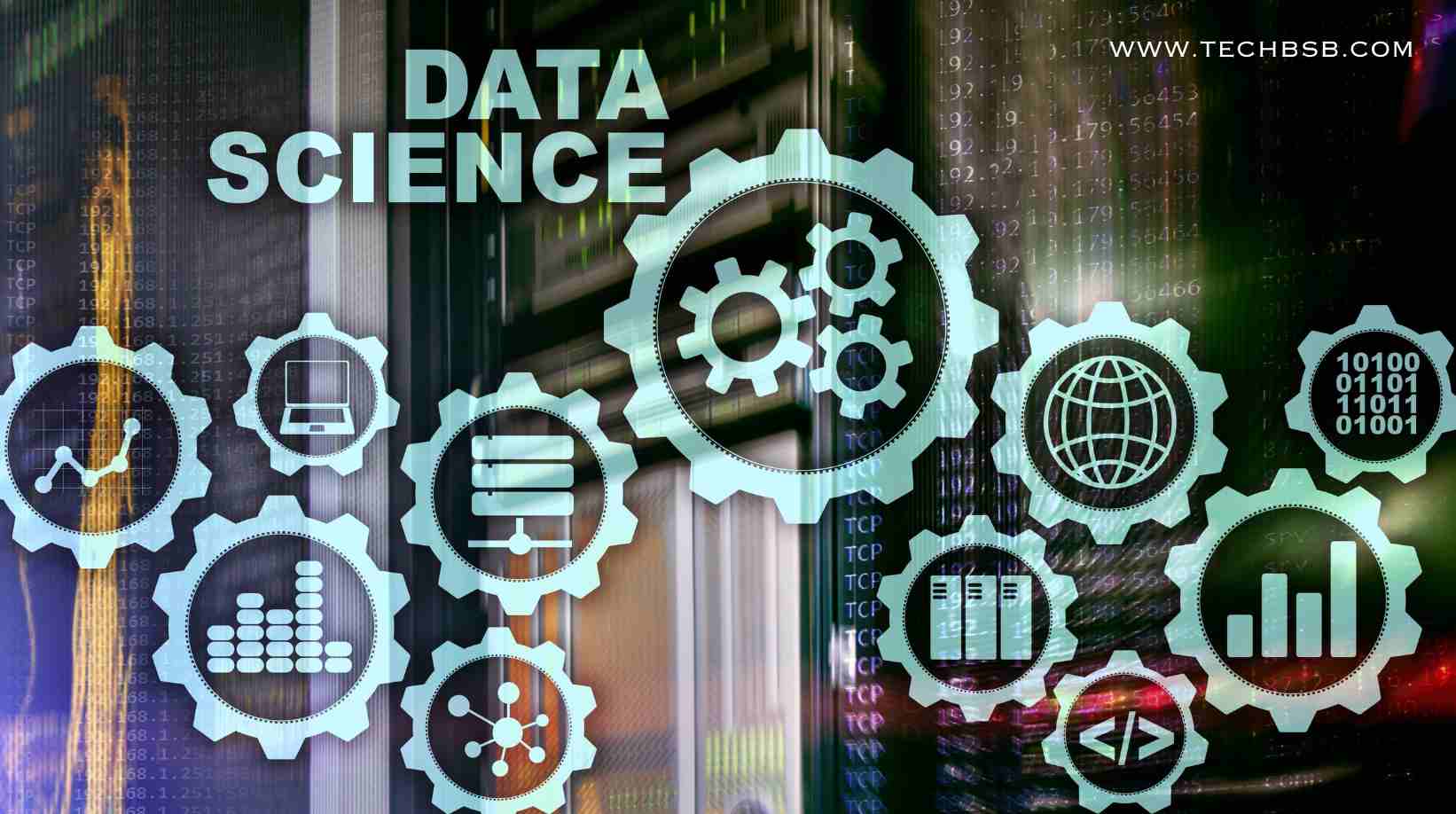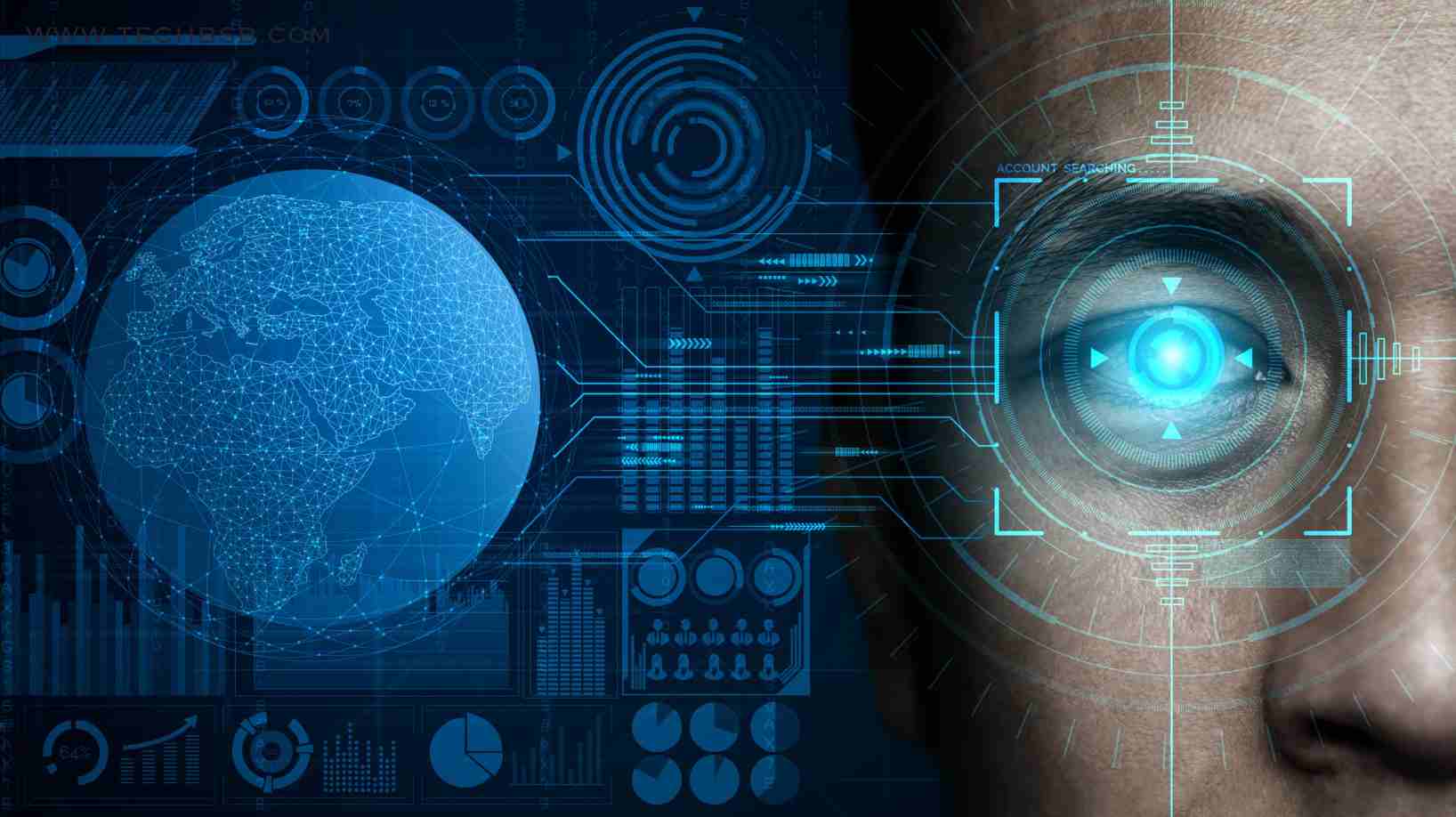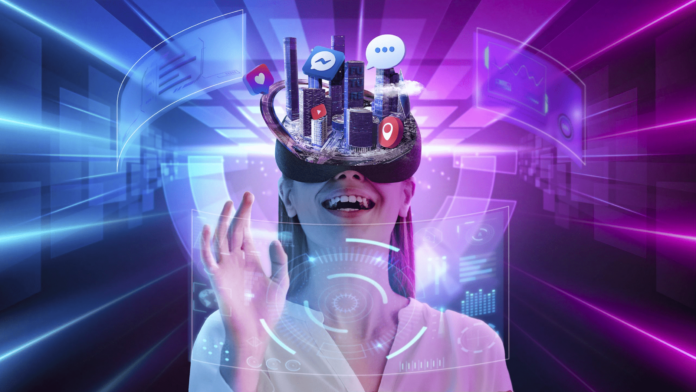Data science, a multidisciplinary field that combines statistical analysis, machine learning, and computational techniques to extract insights from data, is revolutionizing the way content is created, distributed, and consumed.
With the advent of digital platforms and the proliferation of data, the entertainment industry is undergoing a significant evolution, exploiting data-driven strategies to enhance audience engagement, optimize content delivery, and drive innovation.
The entertainment industry encompasses a diverse array of sectors, including film, television, music, gaming, and live events, all of which are experiencing the profound impact of data science.
From personalized content recommendations on streaming platforms to targeted advertising campaigns and predictive analytics for content creation, data science is reshaping every facet of the entertainment ecosystem.

At its core, data science enables entertainment companies to gain deeper insights into audience preferences, behavior patterns, and content consumption habits.
By providing vast amounts of data generated from digital platforms, social media interactions, and streaming services, entertainment companies can effectively tailor their offerings to meet the diverse needs and preferences of their audience.
For instance, streaming giants like Netflix and Spotify leverage sophisticated algorithms and machine learning models to analyze user data and deliver personalized recommendations.
By analyzing viewing or listening history, genre preferences, and demographic information, these platforms curate customized content playlists and recommendations, enhancing user satisfaction and retention.
Data Science in Content Creation
In the entertainment industry, data science is wielding its transformative power with unparalleled efficacy, particularly in the domain of content creation.

This evolution is prominently manifesting through two key avenues:
- Personalized Content Recommendations
- Predictive Analytics For Content Creation
#1 Personalized Content Recommendations
One of the most ubiquitous manifestations of data science’s influence in entertainment is evident in the personalized content recommendations provided by streaming platforms like Netflix and music services like Spotify.
These platforms leverage sophisticated algorithms, fueled by user data, to curate recommendations tailored to individual preferences.
Take, for instance, Netflix’s recommendation system, renowned for its adeptness in suggesting content that aligns seamlessly with users’ viewing habits, preferences, and even moods.
By meticulously analyzing users’ past interactions with the platform ranging from the genres they frequent to the duration of their viewing sessions.
Netflix employs collaborative filtering techniques and machine learning algorithms to deliver a curated selection of movies and TV shows that resonate with each user on a personal level.
Similarly, Spotify has revolutionized the music industry with its meticulously crafted personalized playlists, which cater to the diverse tastes and inclinations of its users.
#2 Predictive Analytics For Content Creation
Beyond personalized recommendations, data science is also reshaping content creation through predictive analytics.
By facilitating the power of predictive modeling and data analysis, content creators can gain invaluable insights into audience preferences, trends, and behavior, thereby informing their creative decisions and content strategies.
Comes with a wealth of data encompassing viewership patterns, engagement metrics, and demographic information, content creators can preemptively anticipate audience demands and preferences, crafting content that resonates authentically with their target demographic.
From predicting the success of potential storylines to fine-tuning character arcs and thematic elements, data-driven insights empower creators to produce content that not only captivates audiences but also fosters deeper connections and engagement.
Improving Audience Engagement and Interaction
Among its myriad impacts, data science is revolutionizing the way audiences engage with and interact within the entertainment sphere.
Social media analytics has emerged as a potent tool for entertainment companies seeking to understand and harness audience sentiment.
By monitoring social media platforms, such as Twitter, Facebook, and Instagram, entertainment entities can gain invaluable insights into audience reactions and preferences in real-time.
Advanced algorithms sift through vast amounts of data, analyzing trends, keywords, and user interactions to gauge audience sentiment toward specific content, events, or personalities.

Moreover, social media analytics enables entertainment brands to actively engage with fans on these platforms, fostering a sense of community and loyalty.
Through personalized responses, targeted campaigns, and interactive content, entertainment companies can deepen their connections with audiences, ultimately driving engagement and enhancing brand affinity.
Beyond social media, data science is reshaping entertainment through immersive interactive experiences. Virtual reality (VR) and augmented reality (AR) technologies are increasingly being integrated into entertainment offerings, transporting audiences into richly immersive worlds and blurring the lines between fiction and reality.
From VR-enhanced movie experiences to AR-enabled interactive exhibits, these technologies are pushing the boundaries of traditional entertainment formats, offering audiences unprecedented levels of engagement and interactivity.
Gamification of the application of game design elements in non-game contexts is gaining traction as a powerful tool for enhancing audience engagement in entertainment.
By incorporating game mechanics such as points, levels, and rewards, entertainment experiences can be transformed into dynamic and interactive journeys, encouraging active participation and fostering deeper connections with audiences.
Streamlining Marketing and Distribution
Data science has emerged as a powerful tool for reshaping how content is marketed and distributed. This transformation is evident in the precision of targeted advertising and the strategic optimization of distribution channels, both of which are propelled by insights gleaned from data analytics.
Targeted advertising, once a broad-brush approach, has undergone a seismic shift thanks to data science. Gone are the days of generic ad campaigns hoping to capture the attention of the masses.
Instead, entertainment companies now provide the wealth of data at their disposal to finely target specific demographics with tailored messages.
By analyzing demographic information, consumer behavior patterns, and preferences, they can craft personalized advertisements that resonate with individual audience segments. This level of precision not only increases the relevance of the ads but also maximizes advertising return on investment (ROI), ensuring that marketing budgets are allocated efficiently for maximum impact.

Data science can also be instrumental in optimizing distribution channels, enabling entertainment companies to make informed decisions regarding platform selection and content delivery strategies.
Through sophisticated data analysis, companies can identify the most effective channels for reaching their target audience, whether it be streaming platforms, social media, or traditional media outlets.
By understanding audience behavior and consumption habits, they can refine their distribution strategies to meet the evolving preferences of viewers.
For instance, if data indicates a surge in mobile streaming among a certain demographic, entertainment providers can prioritize mobile-friendly distribution channels to enhance accessibility and engagement.
The shift towards data-driven marketing and distribution is not without its challenges. Privacy concerns loom large as companies navigate the delicate balance between leveraging consumer data for targeted advertising and respecting individual privacy rights.
Additionally, the proliferation of algorithmic bias raises ethical considerations, necessitating vigilance in ensuring fairness and transparency in decision-making processes.
Data Science in Performance Analysis
By harnessing the power of data analytics, entertainment companies can make informed decisions about their content and distribution strategies, ultimately leading to improved audience engagement and financial success.
One of the key areas where data science is making a significant impact is in predicting box office success. By analyzing historical data such as genre trends, star power, release timing, and marketing strategies, data scientists can forecast the potential performance of a movie with remarkable accuracy.
This predictive modeling not only helps studios gauge audience interest but also enables them to mitigate financial risks associated with film production.
By identifying potential hits and misses early in the process, studios can allocate resources more efficiently and make strategic decisions about marketing budgets and distribution channels.

Streaming platforms, which have become increasingly popular in recent years, also rely heavily on data science for performance analysis. By tracking viewership trends and analyzing user behavior, streaming services can gain valuable insights into audience preferences and viewing habits.
This data-driven approach allows platforms to tailor their content libraries and recommendations to better meet the needs of their subscribers.
For example, algorithms can identify patterns in viewing behavior and suggest similar titles to users, thereby increasing engagement and retention.
Streaming platforms can adapt their content offerings based on real-time performance metrics.
By monitoring viewer engagement metrics such as watch time, completion rates, and user ratings, platforms can quickly identify which content resonates with their audience and which falls flat.
This feedback loop enables platforms to make data-driven decisions about content acquisition, production, and licensing, ultimately leading to a more curated and personalized viewing experience for subscribers.
Challenges of Data Science in Entertainment
- Data Privacy Balancing Act: Entertainment companies must balance the desire for personalized content with user privacy concerns, ensuring that data collection and usage practices prioritize user consent and transparency.
- Transparent Data Practices: Implementing transparent data usage policies is essential, providing users with clear visibility into how their data is collected, stored, and utilized by entertainment platforms.
- Addressing Algorithmic Biases: Entertainment algorithms powering content recommendations and decision-making processes must be scrutinized and refined to mitigate biases that could perpetuate stereotypes or exclude certain demographics.
- Inclusivity in Content Recommendations: Content recommendation algorithms should be optimized to promote diversity and inclusivity, ensuring that they do not inadvertently favor certain groups or overlook diverse voices.
- Guarding Against Discriminatory Content: Entertainment platforms must actively monitor and filter content to prevent the promotion of discriminatory or harmful material, prioritizing the well-being and safety of their audiences.
- Fairness in Decision-Making: Decision-making processes within entertainment organizations should be subject to scrutiny to prevent biases from influencing strategic decisions, fostering fairness and equity in operations.
- Rigorous Methodologies: Adopting rigorous methodologies in data analysis and decision-making helps mitigate biases and ensures that outcomes are driven by objective criteria rather than subjective influences.
- Commitment to Ethical Practices: A steadfast commitment to ethical data practices is essential for the long-term success and sustainability of the entertainment industry, fostering trust with audiences and promoting a more inclusive and responsible entertainment ecosystem.
Future Outlook of Data Science in Entertainment
As the entertainment industry continues to adopt data science, the future outlook promises even more profound transformations, propelled by advancements in machine learning and artificial intelligence (AI).
These technological advancements are poised to revolutionize content creation processes and significantly enhance predictive analytics capabilities.
One of the most significant shifts we anticipate is the integration of AI into content creation processes.
Traditionally, content creation has been a human-driven endeavor, relying on creativity, intuition, and market research. However, with the advent of AI-powered tools and algorithms, we are witnessing a great evolution.

AI can analyze vast amounts of data, including audience preferences, trends, and cultural nuances, to generate insights that inform content creation. From scriptwriting to video editing, AI algorithms can streamline and optimize various aspects of the creative process.
For instance, AI can analyze viewer engagement patterns to suggest plot twists or character arcs that resonate with audiences, ultimately enhancing the quality and relevance of content.
AI-driven predictive analytics capabilities are expected to reach new heights, enabling entertainment companies to make more informed decisions. By leveraging sophisticated machine learning algorithms, businesses can forecast audience demand, anticipate market trends, and optimize resource allocation.
For instance, streaming platforms can use predictive analytics to determine the optimal release window for new content based on historical viewership data and competitor strategies.
Similarly, film studios can employ predictive models to assess the potential box office performance of upcoming releases and tailor marketing strategies accordingly, mitigating financial risks and maximizing returns on investment.
Data Science is Empowering the Entertainment Landscape
The integration of data science into the entertainment industry marks a profound shift in how content is created, distributed, and consumed.
Through personalized recommendations, targeted advertising, and predictive analytics, data science enables creators and distributors to better understand their audience and tailor experiences to meet their evolving preferences.
However, this transformation is not without its challenges, including concerns over data privacy, algorithmic biases, and ethical considerations.
As we face these complexities, stakeholders must prioritize transparency, accountability, and fairness in their data-driven endeavors to ensure that the entertainment landscape remains inclusive, engaging, and ethically sound.
Looking ahead, the future of entertainment lies in the continued advancement of data science technologies and the development of robust ethical frameworks.
As machine learning and AI capabilities evolve, so too will our ability to harness data for more sophisticated content creation, distribution, and audience engagement strategies.
The collaborative efforts between industry players, policymakers, and ethicists will be essential in establishing guidelines and regulations that promote responsible data usage and mitigate potential risks.
By adopting these opportunities and addressing the associated challenges, we can unlock the full potential of data science to enrich the entertainment experience for audiences worldwide.

